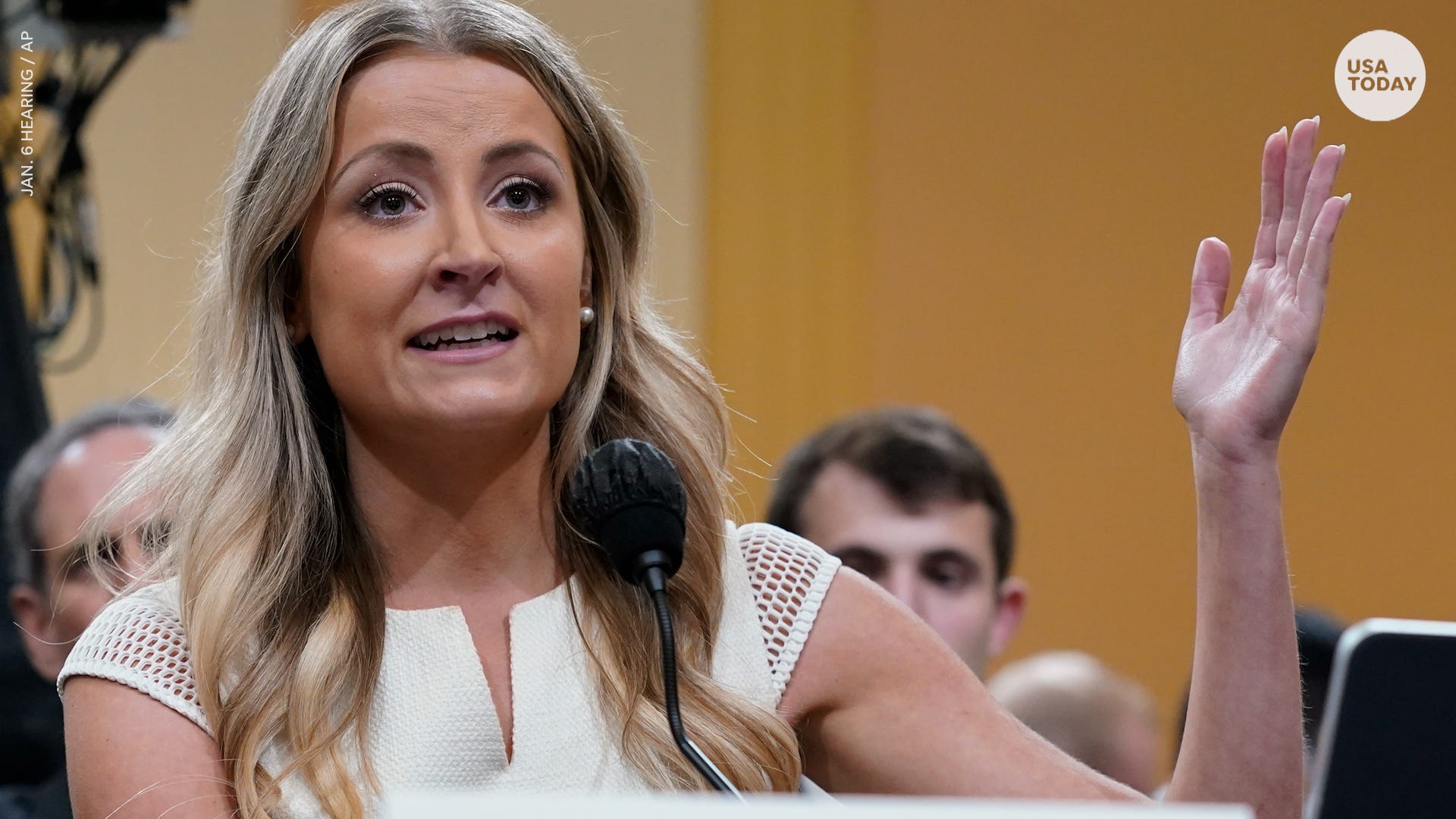Ever since he smeared immigrants and belittled John McCain, Trump has been showing us he’s unfit. He showed it again Tuesday. The mystery is why most Republicans pretend not to notice.

“I know it when I see it,” Justice Potter Stewart wrote of pornography in 1964. That’s how I feel about patriotism after decades of reporting on presidential hopefuls and their campaigns. I know it when I see it, and I never saw it in Donald Trump.
For seven years, ever since he smeared immigrants in his announcement speech and belittled Sen. John McCain’s ordeal as a POW in Vietnam for more than five years, tortured and left with permanent disabilities, Trump has been telling us who he is: a shallow, dishonest brand builder who does not understand or care about his country’s values, history and institutions.
This has underscored the most bewildering aspect of the House Jan. 6 committee hearings: the willful GOP blindness to Trump’s blatant unfitness.
More: Republican women are meeting the moment for Jan. 6 committee hearings
The hearings have beaten expectations on every front, from production values and narrative mastery to generating news, building legal cases and showcasing effective witnesses. They have made stars of former White House aides Cassidy Hutchinson and Sarah Matthews, two brilliant and passionately disillusioned young women.
Conceding a loss is the American way
What I can’t understand is why it took a violent, deadly coup attempt for Hutchinson and Matthews to use words like “unpatriotic,” “un-American” and “indefensible” to describe Trump’s incitement and dereliction of duty on Jan. 6, 2021 – to finally decide that this man was not worthy of their loyalty or hard work.
Why was Matthews part of Trump’s 2020 campaign team trying to get him another four years? Even before that Jan. 6, how could she have considered him “defensible”?
Why did Hutchinson reportedly plan to become a permanent staffer at Mar-a-Lago during Trump’s post-presidency? Even if that plan was hatched before the Capitol invasion, how could she have contemplated continuing to serve him?
“Here’s what so damning,” former congressman and former Republican Joe Walsh tweeted last week of the many onetime Trump administration figures who spoke to the committee. “If Trump had won in 2020, virtually all of these people who’ve testified in these hearings would still be working for him.”
Jan. 6 hearings: Trump watched Fox News while riot raged, Hawley ran away
The politicians I covered understood America’s history and founding principles, respected its military and intelligence communities, and appreciated its responsibilities as a world leader and role model – “this shining city on a hill,” as President Ronald Reagan called it.
So many times I saw in them the idealism and strength I expected to see in aspiring presidents:
Sen. Evan Bayh, choking up as he described a citizenship ceremony he conducted as Indiana secretary of state. Sen. Bob Kerrey, triumphing over anger and despair after losing part of his leg in Vietnam. Virginia Gov. Douglas Wilder, who narrowly escaped death fighting in Korea, then had to fight racism at home.
McCain, the GOP’s 2008 presidential nominee, who followed his own advice to serve “good causes bigger than ourselves.” And President George W. Bush, trying valiantly to quash bigotry shortly after the 9/11 attacks. “The face of terror is not the true faith of Islam,” he said at a mosque. “America counts millions of Muslims amongst our citizens, and Muslims make an incredibly valuable contribution to our country.”
Cancelling Thomas?: Cancel culture came for Clarence Thomas at George Washington law. Now, he’s stepped aside.
John Kerry, who risked his life enlisting to fight in Vietnam then risked his future by testifying against that war. “How do you ask a man to be the last man to die for a mistake?” the former Navy lieutenant asked the Senate Foreign Relations Committee in 1971, at age 27. He later became a senator, Democratic presidential nominee, secretary of State and now, at 78, President Joe Biden’s special envoy on climate.
And Vice President Al Gore, who gave a concession speech for the ages after winning the 2000 popular vote, losing Florida by 537 votes and accepting a Supreme Court ruling that handed Bush the presidency. He said he was conceding “for the sake of our unity as a people and the strength of our democracy.”
With so much at stake, he reflected Sunday on ABC News’ “This Week,” conceding was not a difficult choice.
On Jan. 6, 2001, when Congress finalized Bush’s Electoral College win, the presiding vice president was Al Gore. He did not unilaterally reverse the result or incite a violent attack on the Capitol. There were no lies about fraud or theft, no conspiracy theories about Venezuelan voting technology or Italian military satellites.
Finally spooked by Trump 2024
I won’t recite all the details about how Trump, with his Vietnam War draft avoidance and Muslim travel bans, his Russia business ties and campaign connections, his security breaches and infamous Ukraine and Georgia phone calls, acted exactly the opposite of how a president should. We all lived through it. And I’m truly grateful that some Republicans have stepped up to help the Jan. 6 committee.
Why now? Maybe they are getting right with their consciences. Maybe they are spooked at the idea of Trump back in the White House – either by winning in 2024 or by insisting he won and strong-arming the system. Maybe they see at last that he’s a danger to truth, tolerance and the rule of law.
More from Jill Lawrence:
►The Trump GOP is in ruins and every Jan. 6 committee hearing digs the hole deeper
►From Trump 2020 to ‘Don’t Say Gay,’ GOP leaders waste millions of taxpayer dollars
►Is this the beginning of the end for Trumpism or the Republican Party?
He’s als





